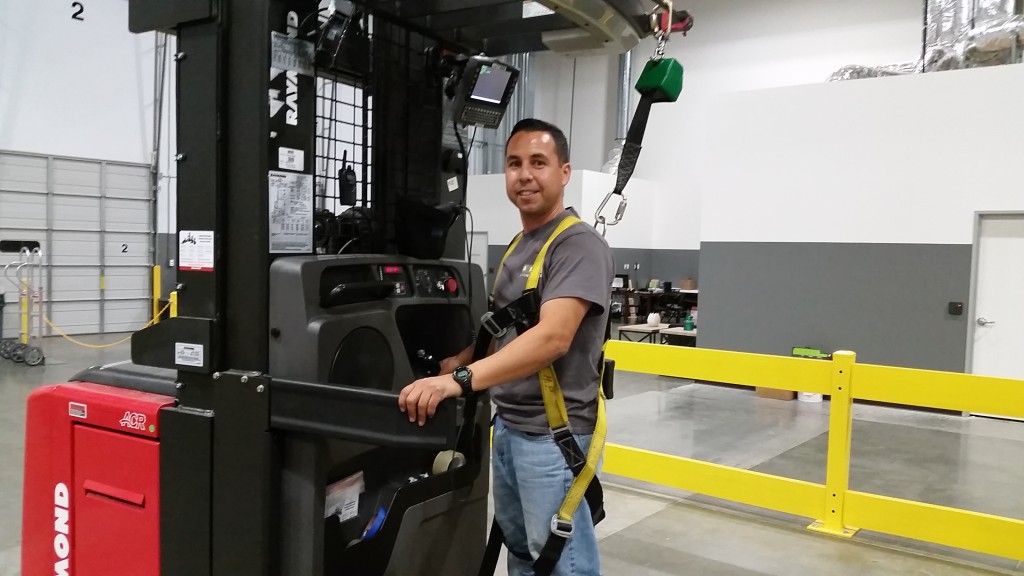
Training New Workers
Training New Workers
A new model of employment-focused social enterprises helps workers re-enter the economy.
In today’s political climate, it’s easy to assume that our civic systems are broken, and accomplishments—when they are not denigrated or outright dismissed by the “other side”—are few and far between.
But increasingly, philanthropists, nonprofits, and citizens—who may or may not share the same political perspectives—are filling the gap where there is gridlock. We are finding and funding new ways to solve problems together. And when it works as it should, government becomes part of this collaboration, supporting solutions that are developed locally and that hold the most promise for wide-scale impact.
“Social enterprises,” which are “double bottom-line” businesses that pursue both profits and the public good in equal measure, are an outstanding example of the kind of creativity and collaboration now emerging to solve the country’s problems. At REDF, we are proud to be at the forefront of encouraging this innovation.
REDF is a venture philanthropy pioneer that invests exclusively in the growth and effectiveness of social enterprises dedicated to helping people who otherwise would be excluded from the workforce, get jobs, keep jobs, and build a better life.
The social enterprises we work with reinvest their profits in comprehensive services that help their employees build skills and confidence while developing a work history. When employees are ready, employment-focused social enterprises help them find and keep competitive, long-term jobs, which leads to greater security and economic mobility for them, and a stronger, more inclusive society for us all.
REDF has spent almost 20 years providing financial backing and advisory services to make these social enterprises succeed in California, helping them achieve the best results possible so that they can give more people the chance to acquire the skills they need to navigate a competitive economy and transform their lives through work.
For example, one of our investments is Chrysalis, a staffing placement agency that is also a social enterprise dedicated to creating pathways to employment for people with low-incomes and a history of homelessness. As part of our involvement, we helped Chrysalis build a proprietary, data-driven tool that allows them to gauge and standardize whether their clients have the hard and soft skills they need to enter the competitive job market. Using this “Personal Employment Plan” (PEP) assessment tool, Chrysalis has been able to help over 1,200 people enter the workforce in a wide variety of fields, including in clerical, light industrial, street maintenance and hospitality. Through the experience workers gain with these placements, they can begin to build a more secure future.
Another one of our portfolio investments is the Center for Employment Opportunities (CEO), a social enterprise that provides comprehensive employment services to people coming out of the criminal justice system. As a partner of CEO, we helped the organization expand its operations into California, enabling it to create hundreds of jobs and demonstrating the scalability of social enterprise and the CEO model. Leveraging our California business and government contacts and know-how, REDF also brokered a $1.5M contract between CEO and the California Department of Transportation, allowing CEO to open its first California office in Oakland, followed by offices in San Diego and San Bernardino. The organization now has plans to open offices in San Jose and Los Angeles this year.

After 17 years in prison, Michael turned his life around with the help of the Center for Employment Opportunities.
Among those who’ve turned their lives with the support of CEO is Michael. At 15, Michael was incarcerated for a gang-related murder. He spent 17 years in prison. When he came out, he didn’t have much hope of finding a job, or creating a life, until he walked through the doors of CEO. There, he got the training and support he needed to succeed. “A job is so much more than a paycheck. It’s a door back into society. Work helped me overcome the obstacles I faced coming out of prison. Employers should know, when you give someone who was incarcerated a second chance, they will be some of the hardest-working, most loyal employees you can ever hire.”
After working as a customer service supervisor at a national furniture chain store – a position to which he was promoted after just three months – Michael is now starting a new job as a case manager for a nonprofit that works with young people involved in the criminal justice system. He is also working toward his bachelor’s degree in public policy, is an advocate in the anti-recidivism movement, and regularly visits the California Senate to tell his story and urge support for prison reform legislation.
For Goodwill of Silicon Valley (GWSV), another social enterprise business that provides people with jobs and assistance to overcome barriers to employment and transform their lives, REDF provided capital investment and advisory support that helped GWSV employ 144 clients in 2015 throughout its multiple social enterprises and business lines – a significant increase since joining REDF’s portfolio. Additionally, we helped GWSV launch a new business line, CleanWheels, a mobile car detailing service that allows GWSV to cater to customers in a variety of locations, including the numerous corporate campuses located nearby. CleanWheels now generates close to $20,000 in earned revenue per month, and employs upwards of 20 people per year.
Our investments have helped these social enterprises transform the lives of people like Katelyn, who once struggled with substance abuse and called a public park home. Thanks to the support of GWSV, Katelyn turned her life around. Today she is paying it forward, working for a social enterprise that helps at risk foster youth. “I am living proof of the potential of a social enterprise to transform a life,” she says.
To date, the social enterprises REDF invests in have earned more than $163 million in revenue and employed more than 11,000 men and women who, thanks to this innovative approach, have had the opportunity to work, take care of themselves and their families, and strengthen our economy and society.
Now, inspired by the extraordinary entrepreneurs who are creating and running social enterprises, as well as those who are going to work in the jobs they create, we are taking our work to a national level in blue states and red states alike.
Our five-year goal is ambitious but achievable: to help 50,000 people who may be at the very lowest point of their lives today gain a chance to work, learn, build skills, form bonds with their coworkers, and make contributions to their families and communities. Our aspiration is to help these Americans imagine a positive future and experience the sense of inclusion and respect that comes with a job.
Toward this end, we began by soliciting applications from social enterprises across the country for the funding and advisory package we had honed through our work in California. More than 200 applications from 36 states across the U.S. made it clear that ours is a solution with broad appeal that knows no geographical or political limits. Communities of all kinds are supporting the growth of sustainable businesses that provide jobs and hope to those who need it most. And funders of all stripes are joining with us to back the effort—from private “investors,” to national and local foundations, to the federal Social Innovation Fund.
REDF's portfolio social enterprises have earned more $163 million in revenue and employed more than 11,000 men and women.
At this time, we have sufficient resources to invest in and advise 22 of the social enterprises that have applied — although there are many more that are worthy of support. Over the next five years, we anticipate bringing together this portfolio to learn from one another, refine their approaches, and continue to build the evidence base that demonstrates the effectiveness of their contributions.
REDF also plans to work with them in communities across the United States to create a robust “ecosystem” of supportive businesses, foundations, governments, and nonprofits that can dramatically expand the network of partners creating long-term jobs and opportunity.
Why is this model generating such widespread support? Philanthropy and government are more focused than ever on evidence-based practices that achieve documented outcomes. Third-party data by Mathematica Policy Research, a leader in the field of measuring policy and program impact, shows that for every $1,000 invested in helping people who have faced significant employment barriers become workers and taxpayers, society reaps $2,230 worth of benefits as these individuals become involved in a positive way in the lives of their families and communities.
With others in philanthropy, we are proud to be scaling up a solution that has growing support from all segments of society, due to its proven track record and inspiring goal. The social enterprises that are part of our portfolio provide a reliable, effective pathway that offers people who are willing and able to work, the opportunity to do so.
Hard workers who are community-minded, taking the risk to do it differently. Overcoming adversity. Doing it for themselves. That is the story of this exploding field and of the people employed who have faced formidable challenges—and despite that, are now going to work. Their energy, ingenuity and progress are both testament to and an example of how philanthropy, nonprofits, the business community – and yes, government – can work together to benefit the nation.
Carla Javits is the President and CEO of REDF.
Philanthropy
REDF
Project
Employment-focused social enterprises


